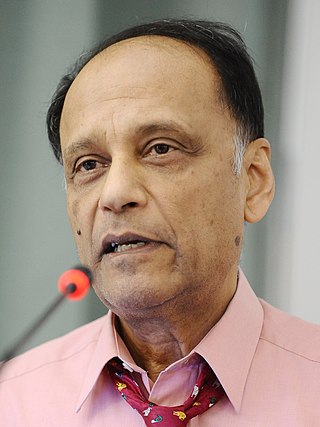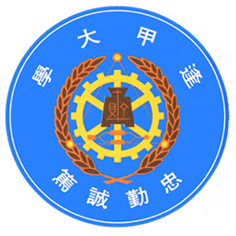
Thomas Eugene Lovejoy III was an American ecologist who was President of the Amazon Biodiversity Center, a Senior Fellow at the United Nations Foundation and a university professor in the Environmental Science and Policy department at George Mason University. Lovejoy was the World Bank's chief biodiversity advisor and the lead specialist for environment for Latin America and the Caribbean as well as senior advisor to the president of the United Nations Foundation. In 2008, he also was the first Biodiversity Chair of the H. John Heinz III Center for Science, Economics and the Environment to 2013. Previously he served as president of the Heinz Center since May 2002. Lovejoy introduced the term biological diversity to the scientific community in 1980. He was a past chair of the Scientific Technical Advisory Panel (STAP) for the Global Environment Facility (GEF), the multibillion-dollar funding mechanism for developing countries in support of their obligations under international environmental conventions.

Ecological economics, bioeconomics, ecolonomy, eco-economics, or ecol-econ is both a transdisciplinary and an interdisciplinary field of academic research addressing the interdependence and coevolution of human economies and natural ecosystems, both intertemporally and spatially. By treating the economy as a subsystem of Earth's larger ecosystem, and by emphasizing the preservation of natural capital, the field of ecological economics is differentiated from environmental economics, which is the mainstream economic analysis of the environment. One survey of German economists found that ecological and environmental economics are different schools of economic thought, with ecological economists emphasizing strong sustainability and rejecting the proposition that physical (human-made) capital can substitute for natural capital.
The ecological footprint measures human demand on natural capital, i.e. the quantity of nature it takes to support people and their economies. It tracks human demand on nature through an ecological accounting system. The accounts contrast the biologically productive area people use to satisfy their consumption to the biologically productive area available within a region, nation, or the world (biocapacity). Biocapacity is the productive area that can regenerate what people demand from nature. Therefore, the metric is a measure of human impact on the environment. As Ecological Footprint accounts measure to what extent human activities operate within the means of our planet, they are a central metric for sustainability.

Mercy Corps is a global non-governmental, humanitarian aid organization operating in transitional contexts that have undergone, or have been undergoing, various forms of economic, environmental, social and political instabilities. The organization claims to have assisted more than 220 million people survive humanitarian conflicts, seek improvements in livelihoods, and deliver durable development to their communities.

Genuine progress indicator (GPI) is a metric that has been suggested to replace, or supplement, gross domestic product (GDP). The GPI is designed to take fuller account of the well-being of a nation, only a part of which pertains to the size of the nation's economy, by incorporating environmental and social factors which are not measured by GDP. For instance, some models of GPI decrease in value when the poverty rate increases. The GPI separates the concept of societal progress from economic growth.
Techno-progressivism or tech-progressivism is a stance of active support for the convergence of technological change and social change. Techno-progressives argue that technological developments can be profoundly empowering and emancipatory when they are regulated by legitimate democratic and accountable authorities to ensure that their costs, risks and benefits are all fairly shared by the actual stakeholders to those developments. One of the first mentions of techno-progressivism appeared within extropian jargon in 1999 as the removal of "all political, cultural, biological, and psychological limits to self-actualization and self-realization".

Sir Partha Sarathi Dasgupta is an Indian-British economist who is Frank Ramsey Professor Emeritus of Economics at the University of Cambridge, United Kingdom, and a fellow of St John's College, Cambridge.

Feng Chia University is a private research university in Taiwan, located in Taichung. It was named after Chiu Feng-Chia one of the leaders of the military resistance against the Japanese invasion of Taiwan in 1895.

The environmental humanities is an interdisciplinary area of research, drawing on the many environmental sub-disciplines that have emerged in the humanities over the past several decades, in particular environmental literature, environmental philosophy, environmental history, science and technology studies, environmental anthropology, and environmental communication. Environmental humanities employs humanistic questions about meaning, culture, values, ethics, and responsibilities to address pressing environmental problems. The environmental humanities aim to help bridge traditional divides between the sciences and the humanities, as well as between Western, Eastern, and Indigenous ways of relating to the natural world and the place of humans within it. The field also resists the traditional divide between "nature" and "culture," showing how many "environmental" issues have always been entangled in human questions of justice, labor, and politics. Environmental humanities is also a way of synthesizing methods from different fields to create new ways of thinking through environmental problems.

Patrick O'Reilly Brown is an American scientist and businessman who is the founder of Impossible Foods Inc. and professor emeritus in the department of biochemistry at Stanford University. Brown is co-founder of the Public Library of Science, inventor of the DNA microarray, and a former investigator at Howard Hughes Medical Institute.
Resource refers to all the materials available in our environment which are technologically accessible, economically feasible and culturally sustainable and help us to satisfy our needs and wants. Resources can broadly be classified according to their availability — they are categorized into renewable and non-renewable resources. They can also be classified as actual and potential based on the level of development and use; based on origin they can be classified as biotic and abiotic, and based on their distribution, as ubiquitous and localised. An item may become a resource with time and development of technology. The benefits of resource utilization may include increased wealth, proper functioning of a system, or enhanced well-being. From a human perspective, a natural resource is anything obtained from the environment to satisfy human needs and wants. From a broader biological or ecological perspective, a resource satisfies the needs of a living organism.
Sustainability metrics and indices are measures of sustainability, and attempt to quantify beyond the generic concept. Though there are disagreements among those from different disciplines, these disciplines and international organizations have each offered measures or indicators of how to measure the concept.

Sustainability accounting was originated about 20 years ago and is considered a subcategory of financial accounting that focuses on the disclosure of non-financial information about a firm's performance to external stakeholders, such as capital holders, creditors, and other authorities. Sustainability accounting represents the activities that have a direct impact on society, environment, and economic performance of an organisation. Sustainability accounting in managerial accounting contrasts with financial accounting in that managerial accounting is used for internal decision making and the creation of new policies that will have an effect on the organisation's performance at economic, ecological, and social level. Sustainability accounting is often used to generate value creation within an organisation.

Sustainability is a social goal for people to co-exist on Earth over a long time. Definitions of this term are disputed and have varied with literature, context, and time. Experts often describe sustainability as having three dimensions : environmental, economic, and social, and many publications emphasize the environmental dimension. In everyday use, sustainability often focuses on countering major environmental problems, including climate change, loss of biodiversity, loss of ecosystem services, land degradation, and air and water pollution. The idea of sustainability can guide decisions at the global, national, and individual levels. A related concept is sustainable development, and the terms are often used to mean the same thing. UNESCO distinguishes the two like this: "Sustainability is often thought of as a long-term goal, while sustainable development refers to the many processes and pathways to achieve it."
Kamal Quadir is a Bangladeshi American entrepreneur and artist best known for introducing e-commerce in Bangladesh by founding CellBazaar, an electronic marketplace which, after reaching 4 million users, was acquired by Norwegian telecommunications operator Telenor in 2010. CellBazaar later was rebranded as ekhanei.com. He is the brother of Iqbal Quadir, who is an entrepreneur and promoter of the role of entrepreneurship and innovation in creating prosperity in low-income countries.

Technology, society and life or technology and culture refers to the inter-dependency, co-dependence, co-influence, and co-production of technology and society upon one another. Evidence for this synergy has been found since humanity first started using simple tools. The inter-relationship has continued as modern technologies such as the printing press and computers have helped shape society. The first scientific approach to this relationship occurred with the development of tektology, the "science of organization", in early twentieth century Imperial Russia. In modern academia, the interdisciplinary study of the mutual impacts of science, technology, and society, is called science and technology studies.
The following outline is provided as an overview of and topical guide to social science:
The term "Harmony with Nature" refers to a principle of amicable and holistic co-existence between humanity and nature. It is used in several contexts, most prominently in relation to sustainable development and the rights of nature, both aimed at addressing anthropogenic environmental crises. In 2009, the United Nations created a program of the same name. Following support from the Bolivian Government, the UN General Assembly approved further resolutions on the topic. Events like the United Nations Earth Summit 2012 have provided a platform for exchange between different stakeholders. Below is the text of the proposal.
The Global Sustainability Assessment System (GSAS) [Originally QSAS] is the first performance-based system in the Middle East and North Africa (MENA) region, developed for assessing and rating buildings and infrastructure for their sustainability impacts. In 2016, FIFA officially endorsed GSAS as the sustainability assessment system for Qatar's eight stadiums set to host the 2022 FIFA World Cup. The primary objective of GSAS is to create a sustainable built environment that minimizes ecological impact and reduces resources consumption while addressing the local needs and environmental conditions specific to the region. GSAS adopts an integrated lifecycle approach for the assessment of the built environment including design, construction and operation phases.










